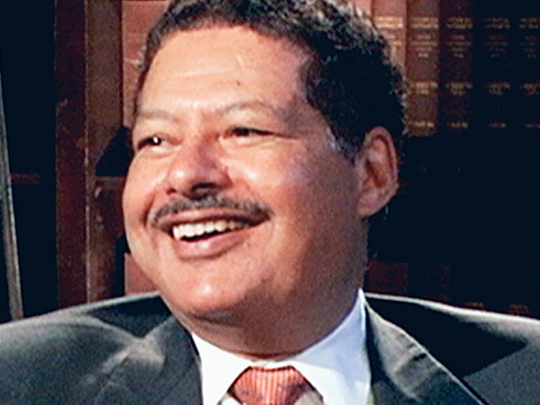
Cairo: Egyptian-US scientist Ahmad Zeweil, the 1999 winner of the Nobel Prize in Chemistry, has died in the US, Egyptian state television said. He was 70.
Arrangements are under way to transport his body from California for burial in Egypt, the broadcaster added without giving details.
Zeweil was awarded the Collar of the Nile, Egypt’s top prize and several other honorary prizes from around the world.
Egyptian President Abdul Fattah Al Sissi lauded Zeweil as a "scientist who devoted his life" to scientific research.
"The president extends deep condolences to the late scientist's family, kins and all his pupils inside and outside the homeland," a presidential statement said.
Al Sissi added that Zeweil was keen to "convey fruits" of his research to Egyptians, who regard him as a "great scientific example and a lofty human value".
Born in the Nile Delta province of Damanhur in February 1946, Zeweil obtained bachelor’s and master’s degrees in science from the University of Alexandria where he worked as a teacher for some time. He travelled to the US on a scholarship and got a doctorate’s degree in chemistry from the University of Pennsylvania.
He was known as the father of femtochemistry, a branch of physical chemistry that deals with chemical reactions happening in a matter of femtoseconds.
In recent years, Zeweil frequently visited Egypt where he oversaw a scientific research institution called the Zeweil City of Science and Technology.
His spokesman Sharif Fouad told state television that Zeweil had asked in his will to be buried in Egypt and for continued support for the project named after him, located in the October 6 city on the outskirts of Cairo.
The cause of his death was not known yet, Fouad added.












